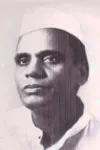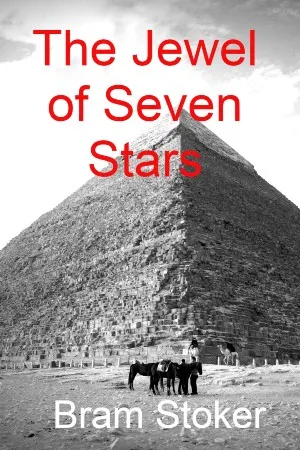CHAPTER IX.THE KRAAL.[edit]
The next day operations were continued. The angle
made by the baobab with the extremities of the base was
measured, and the first triangle solved. Two more stations
were chosen to the right and left of the meridian; one formed
by a distinct mound, six miles away; the other, marked out
by a post about seven miles distant.
The triangulation went on uninterruptedly for a month,
and by the 15th of May the observers had advanced northwards
1°, having formed seven triangles. During this first
series of operations, the Colonel and Strux were rarely together.
The division of labour separated them, and the
circumstance of their daily work being several miles apart
was a guarantee against any dispute. Each evening they
returned to their several abodes, and although at intervals
discussions arose about the choice of stations, there was no
serious altercation. Hence Zorn and his friend were in
hopes that the survey would proceed without any open
rupture.
After advancing 1° from the south, the observers found
themselves in the same parallel with Lattakoo, from which
they were distant 35 miles to the west.
Here a large kraal had lately been formed, and as it was
a marked halting-place, Sir John Murray proposed that
they should stay for several days. Zorn and Emery could
take advantage of the rest, to take the altitude of the sun;
and Palander would employ himself in reducing the measurements
made at different points of sight to the uniform
level of the sea. Sir John himself wanted to be free from
scientific observations, that he might divert himself with his
gun among the fauna of the country. A kraal, as it is
termed by the natives of South Africa, is a kind of moving
village, wandering from one pasturage to another. It is an
enclosure composed ordinarily of about thirty habitations,
and containing several hundred inhabitants. The kraal
now reached was formed by a group of more than sixty huts,
enclosed for protection from wild animals by a palisade of
prickly aloes, and situated on the banks of a small affluent
of the Kuruman. The huts, made of water-proof rush mats
fastened to wooden beams, were like low hives. The doorway,
protected by a skin, was so small that it could only
be entered on hands and knees, and from this, the only
aperture, issued such dense wreaths of smoke as would
make existence in these abodes problematical to any but a
Bochjesman or a Hottentot.
The whole population was roused by the arrival of the
caravan. The dogs, of which there was one for the protection
of each cabin, barked furiously, and about 200 warriors,
armed with assagais, knives, and clubs, and protected by
their leathern shields, marched forward.
A few words from Mokoum to one of the chiefs soon
dispelled all hostile feeling, and the caravan obtained permission
to encamp on the very banks of the stream. The
Bochjesmen did not even refuse to share the pastures,
which extended for miles away.
Mokoum having first given orders for the waggons to be
placed in a circle as usual, mounted his zebra, and set off
in company with Sir John Murray, who rode his accustomed
horse. The hunters took their dogs and rifles, showing
their intention of attacking the wild beasts, and went
towards the woods.
“I hope, Mokoum,” said Sir John, “that you are going
to keep the promise you made at the Morgheda Falls, that
you would bring me into the best sporting country in the
world. But understand, I have not come here for hares or
foxes; I can get them at home. Before another hour—”
“Hour!” replied the bushman. “You are rather too
fast. A little patience, please. For myself, I am never
patient except when hunting, and then I make amends for
all my impatience at other times. Don't you know, Sir
John, that the chase of large beasts is quite a science.
Here you must wait and watch. You must not step or
even look too quickly. For my part, I have laid in wait
for days together for a buffalo or gemsbok, and if I have
had success at last, I have not considered my trouble in
vain.”
“Very good,” replied Sir John, “I can show you as much
patience as you can wish; but mind, the halt only lasts for
three or four days, and we must lose no time.”
“There is something in that,” said the bushman, so
calmly that Emery would not have recognized his companion
of the Orange River; “we will just kill that which
comes first. Sir John, antelope or deer, gnu or gazelle, any
thing must do for hunters in a hurry.”
“Antelope or gazelle!” cried Sir John, “why, what
more could I ask, my good fellow?”
“As long as your honour is satisfied I have nothing more
to say,” said the bushman, somewhat ironically. “I thought
that you would not let me off with any thing less than a
rhinoceros or two, or at least an elephant”
“Any thing and any where,” said Sir John, “we only
waste time in talking.”
The horses were put to a hand-gallop, and the hunters
advanced quickly towards the forest. The plain rose with
a gentle slope towards the north-east. It was dotted here
and there with shrubs in full bloom, from which issued a
viscous resin, transparent and odorous, of which the colonists
make a balm for wounds. In picturesque groups rose the
“nwanas,” a kind of sycamore fig, whose trunks, leafless to
the height of 30 or 40 feet, supported a spreading parasol
of verdure. Among the foliage chattered swarms of screaming
parrots, eagerly pecking the sour figs. Farther on were
mimosas with their yellow clusters, “silver trees,” shaking
their silky tufts, and aloes with spikes so red that they
might pass for coral plants torn from the depths of the sea.
The ground, enamelled with amaryllis with their bluish
foliage, was smooth and easy for the horses, and in less
than an hour after leaving the kraal, the sportsmen reached
the wood. For several miles extended a forest of acacias,
the entangled branches scarcely allowing a ray of sunlight
to penetrate to the ground below, which was encumbered
by brambles and long grass.
The hunters had little difficulty, however, in urging on
both horse and zebra, in spite of every obstacle, resting at
the recurring glades to examine the thickets around them.
The first day was not very favourable. In vain was the
forest scoured; not a single beast stirred, and Sir John's
thoughts turned more than once to the plains of Scotland,
where a shot is rarely long delayed. Mokoum evinced
neither surprise nor vexation; to him it was not a hunt, but
merely a rush across the forest.
Towards six in the evening they had to think about
returning. Sir John was more vexed than he would allow.
Rather than that he, the renowned hunter, should return
empty-handed, he resolved to shoot whatever first came
within range, and fortune seemed to favour him.
They were not more than three miles from the kraal
when a hare (of the species called “lepus rupestris”) darted
from a bush about 150 paces in front of them. Sir John
did not hesitate a moment, and sent his explosive ball after
the poor little animal.
The bushman gave a cry of indignation at such a ball
being employed for such an aim; but the Englishman,
eager for his prey, galloped to the spot where the victim
fell. In vain! the only vestiges of the hare were the bloody
morsels on the ground. Whilst the dogs rummaged in the
brushwood, Sir John looked keenly about, and cried,—
“I am sure I hit it!”
“Rather too well,” replied the bushman quietly.
And sure enough, the hare had been blown into countless
fragments.
Sir John, greatly mortified, remounted his horse, and
returned to camp, without uttering another word.
The next day the bushman waited for Sir John Murray
to propose another expedition; but the Englishman applied
himself for a time to his scientific instruments. For pastime
he watched the occupants of the kraal as they practised
with their bows, or played on the “gorah,” an instrument
composed of a piece of catgut stretched on a bow, and kept
in vibration by blowing through an ostrich feather. He
remarked that the women, while occupied in their domestic
duties, smoked “matokouané” that is, the unwholesome
hemp-plant, a practice indulged in by most of the natives.
According to some travellers, this inhaling of hemp increases
physical strength to the damage of mental energy; and,
indeed, many of the Bochjesmen appeared stupefied from
its effects.
At dawn, however, the following day, Sir John Murray
was aroused by the appearance of Mokoum, who said, “I
think, sir, we may be fortunate enough to-day to find something
better than a hare.”
Sir John, not heeding the satire, declared himself ready;
and the two hunters, accordingly, were off betimes. This
time, Sir John, instead of his formidable rifle, carried a
simple gun of Goldwin's, as being a more suitable weapon.
True, there was a chance of meeting some prowling beast
from the forest; but he had the hare on his mind, and would
sooner use small shot against a lion than repeat an incident
unprecedented in the annals of sport.
Fortune, to-day, was more favourable to the hunters.
They brought down a couple of harrisbucks, a rare kind of
black antelope, very difficult to shoot. These were charming
animals, four feet high, with long diverging horns shaped
like scimitars. The tips of their noses were narrow; they
had black hoofs, close soft hair, and pointed ears. Their
face and belly, white as snow, contrasted well with their
black back, over which fell a wavy mane. Hunters may
well be proud of such shots, for the harrisbuck has
always been the desideratum of the Delegorgues, Vahlbergs.
Cummings, and Baldwins, and it is one of the finest specimens
of the southern fauna.
But what made the Englishman's heart beat fastest, was
Mokoum's showing him certain marks on the edge of the
thick underwood, not far from a deep pool, surrounded by
giant euphorbias, and whose surface was dotted with sky-blue
water-lilies.
“Come and lie in ambush here to-morrow, sir,” said
Mokoum, “and this time you may bring your rifle. Look at
these fresh footprints.”
“What are they? Can they be an elephant's?” asked
Sir John.
“Yes,” replied Mokoum, “and, unless I am mistaken, of
a male full-grown.”
Eagerly, then, was the engagement made for the following
day. Sir John's horse, as they returned, carried the harrisbucks.
These fine creatures, so rarely captured, excited
the admiration of the whole caravan, and all congratulated
Sir John, except perhaps Matthew Strux, who knew little
of animals, except the Great Bear, the Centaur, Pegasus,
and other celestial fauna.
At four o'clock the next morning, the hunters, attended
by their dogs, were already hidden in the underwood. They
had discovered by new footmarks that the elephants came
in a troop to drink at the pool. Their grooved rifles carried
explosive bullets. Silent and still, they watched for about
half-an-hour, when they observed a movement in the grove,
about fifty paces from the pool. Sir John seized his gun,
but the bushman made him a sign to restrain his impatience.
Soon large shadows appeared: the thickets rustled under
the violence of some pressure; the brushwood snapped and
crackled, and the sound of a loud breathing was perceptible
through the branches. It was the herd of elephants. Half-a-dozen
gigantic creatures, almost as large as those of India,
advanced slowly towards the pool. The increasing daylight
allowed Sir John, struck with admiration, to notice especially
a male of enormous size. His colossal proportions
appeared in the partial light even greater than they really
were. While his trunk was extended above the underwood,
with his curved tusks he struck the great stems, which
groaned under the shock. The bushman leant down close
to Sir John's ear, and whispered,—
“Will he suit you?”
Sir John made a sign of affirmation.
“Then,” said Mokoum, “we will separate him from the
rest.”
At this instant, the elephants reached the edge of the
pool, and their spongy feet sank into the soft mud. They
pumped up the water with their trunks, and poured it into
their throats with a loud gurgling. The great male looked
uneasily about him, and seemed to scent some approaching
danger.
Suddenly the bushman gave a peculiar cry. The dogs,
barking furiously, darted from concealment, and rushed to-wards
the herd. At the same moment, Mokoum, charging
his companion to remain where he was, went off on his
zebra to intercept the elephant's retreat. The animal made
no attempt to take flight, and Sir John, with his finger on
the lock of his rifle, watched him closely. The brute beat
the trees, and lashed his tail furiously, showing signs not of
uneasiness, but of anger. Now, for the first time, catching
sight of his enemy, he rushed upon him at once.
Sir John was about sixty paces distant; and waiting till
the elephant came within forty paces, he aimed at his flank
and fired. But a movement of the horse made his aim
unsteady, and the ball only entered the soft flesh without
meeting any obstacle sufficient to make it explode.
The enraged beast increased its pace, which was rather a
rapid walk than a run, and would have soon distanced the
horse. Sir John's horse reared, and rushed from the thicket,
his master unable to hold him in. The elephant followed,
ears erect, and bellowing like a trumpet. Sir John, thus
carried away, held on to his horse tightly with his knees,
and endeavoured to slip a cartridge into the chamber of his
rifle. Still the elephant gained on him. They were soon
beyond the wood, and out on the plain. Sir John vigorously
used his spurs, and the two dogs rushed panting in
the rear. The elephant was not two lengths behind. Sir
John could hear the hissing of his trunk, and almost feel
his strong breath. Every moment he expected to be
dragged from his saddle by the living lasso. All at once
the horse sunk on his hind-quarters, struck by the elephant
on his haunches. He neighed, and sprung to one side, thus
saving Sir John. The elephant, unable to check his course,
passed on, and sweeping the ground with his trunk, caught
up one of the dogs, and shook it in the air with tremendous
violence. No resource remained except to re-enter the
wood, and the horse's instinct carried him thither. The
elephant continued to give chase, brandishing the unlucky
dog, whose head he smashed against a sycamore as he
rushed into the forest. The horse darted into a dense
thicket entangled with prickly creepers, and stopped.
Sir John, torn and bleeding, but not for an instant discomposed,
turned round, and shouldering his rifle, took aim
at the elephant close to the shoulder, through the net-work
of creepers. The ball exploded as it struck the bone.
The animal staggered, and almost at the same moment
a second shot from the edge of the wood struck his left
flank. He fell on his knees near a little pool, half-hidden
in the grass. There, pumping up the water with his
trunk, he began to wash his wounds, uttering plaintive
cries. The bushman now appeared, shouting, “He is ours,
he is ours!”
And in truth the animal was mortally wounded. He
groaned piteously, and breathed hard. His tail moved
feebly, and his trunk, fed from the pool of his blood, poured
back a crimson stream on the surrounding brushwood.
Gradually failed his strength, and the great beast was
dead.
Sir John Murray now emerged from the grove. He was
half naked, little of his hunting costume remaining but
rags. But he felt as though he could have given his very
skin for this triumph.
“A glorious fellow!” he exclaimed, as he examined the
carcase; “but rather too big to carry home.”
“True, sir,” answered Mokoum; “we will cut him up
on the spot, and carry off the choice parts. Look at his
magnificent tusks! Twenty-five pounds a-piece at least!
And ivory at five shillings a-pound will mount up.”
Thus talking, the hunter proceeded to cut up the animal.
He took off the tusks with his hatchet, and contented himself
with the feet and trunk, as choice morsels with
which to regale the members of the Commission. This
operation took some time, and he and his companion did
not get back to camp before midday. The bushman had
the elephant's feet cooked according to the African method.
that is, by burying them in a hole previously heated, like
an oven, with hot coals.
The delicacy was fully appreciated by all, not excepting
the phlegmatic Palander, and Sir John Murray received a
hearty round of compliments.








